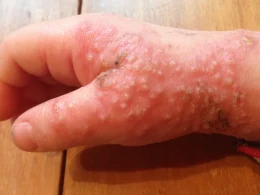It is critical to understand the signs of COVID-19 in light of the continuing epidemic. Read this article to learn everything you need to know about the signs and symptoms of this virus. We’ll go through everything you need to know, from the most obvious warning flags to the tiniest clues. Let’s take a deep dive into the symptomatology of COVID-19.
Introduction to COVID-19
Millions of people throughout the world have contracted SARS-CoV-2, the new coronavirus responsible for COVID-19. The key to stopping its spread is learning to recognize its signs. This page will explain the different COVID-19 symptoms, from the most frequent to the least common.
Common COVID-19 Symptoms
Fever:
a temperature that stays abnormally high for an extended period of time.
Cough:
First, many people experience a dry cough.
Shortness of Breath:
One warning sign is having trouble breathing.
Fatigue:
extreme fatigue that does not alleviate with sleep.
Loss of Taste or Smell:
This is a symptom of a condition called anosmia.
Sore Throat:
For one, you could have some throat discomfort or soreness.
Body Aches:
Muscle pain or general soreness.
Less Common Symptoms
While the aforementioned symptoms are typical, others may be present, such as:
- Nausea and Vomiting
- Diarrhea
- Headaches
- Skin Rashes
Asymptomatic Cases
It is important to note that some people with COVID-19 infection show no signs of illness at all. This implies that there are no outward signs of the virus’s presence, making diagnosis difficult in the absence of testing.
Long COVID: Lingering Symptoms
Some people with COVID-19 continue to have symptoms long after the initial infection has cleared, a condition known as “Long COVID.” Symptoms like this may not go away for weeks or months.
- Extreme Fatigue
- Brain Fog
- Breathing Difficulties
- Joint Pain
-
COVID-19 vs. the Flu: Spotting the Differences
Similarities between COVID-19 and the common flu include high temperature and a persistent cough. Loss of taste and smell is a frequent symptom of COVID-19, but these people also have other unique characteristics.
Symptoms in Children
Similar to adults, children may have same signs, but they are often less severe. Watch out for:
- Fever
- Cough
- Runny Nose
- Fatigue
Symptoms in the Elderly
The severity of COVID-19 is increased in the elderly. Take note of:
- Shortness of Breath
- Confusion
- Dizziness
Mental Health and COVID-19
Mental health has suffered as a result of the epidemic. Stress, anxiety, and sadness are all quite frequent. Don’t go through this alone; look for help if you need it.
Recognizing COVID-19 Symptoms Early
Detection at an early stage is essential for limiting the virus’s transmission. It’s important to be tested and stay isolated if you feel symptoms or come into touch with a confirmed case.
When to Seek Medical Attention
If you have trouble breathing, chest discomfort, disorientation, or pale lips or face, you should get medical care right once.
Preventive Measures
Prevention of COVID-19 is essential. Adhere to precautions such as mask use, hand washing, and maintaining social distance. Immunisation is strongly suggested.
Vaccination and Symptoms
Some people get minor side effects after getting vaccinated, such discomfort at the injection site, tiredness, or a little temperature. These last for a short time and indicate that your immune system is strengthening.
Myths Surrounding COVID-19 Symptoms
Defying conventional wisdom: not everything you hear is correct. Stay informed by acquiring correct data from trustworthy resources.
Conclusion
In conclusion, it is crucial for individual and community health to be familiar with the signs of COVID-19. Protect yourself and others around you by remaining watchful, using preventative steps, and getting vaccinated.
FAQs
1.Can I have COVID-19 without a fever?
Some people can be infected and show no signs of illness at all.
2.How long do COVID-19 symptoms typically last?
It might be anywhere from a few of days to a few weeks.
3.Are all COVID-19 symptoms severe?
Some people may only experience moderate symptoms, or maybe no symptoms at all.
4.Is loss of taste and smell a definitive COVID-19 symptom?
Although not conclusive, it is usually a good sign.
5.Are the COVID-19 vaccines effective in preventing symptoms?
Yes, immunizations substantially lessen the likelihood of experiencing serious symptoms and needing hospitalization.





